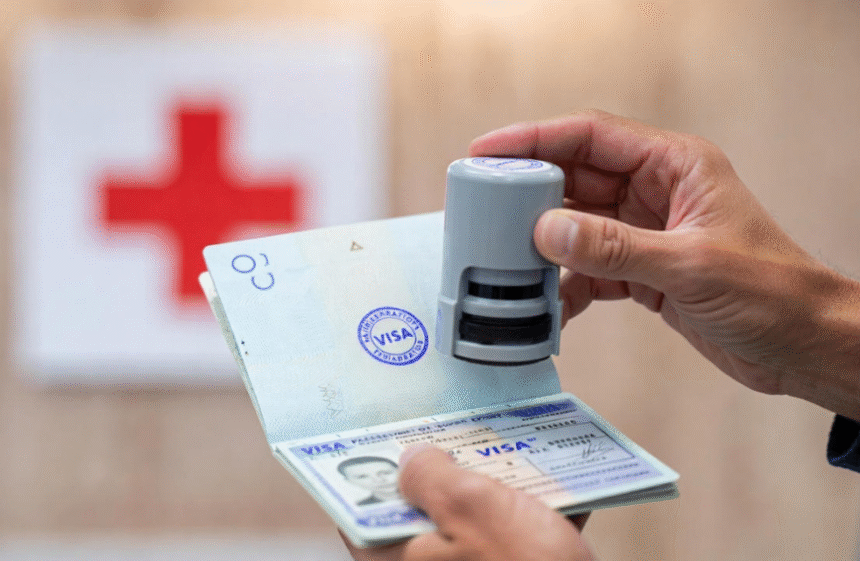The United States government is set to begin the implementation of a new visa rule that may target immigrants with chronic health conditions.
Reports emerging on Friday revealed that immigrants with chronic health conditions such as diabetes, obesity, and heart disease may now be denied U.S visas under sweeping new guidance issued by the administration of President Donald Trump.
The reported move is said to be contained in a cable sent from the U.S State Department to embassies and consular offices, instructing visa officers to consider a prospective immigrant’s health as a potential financial burden, classifying them as a “public charge” and justifying a rejection.
The new policy is expected to expand the traditional “public charge” rule, which historically focused on an applicant’s likelihood of depending on government cash benefits.
The new rule is expected to now go further, specifically naming non-communicable, chronic issues, including diabetes, cardiovascular diseases, metabolic disorders, and even mental health conditions, that may require “expensive, long-term care.”
The purported cable reads in part: “You must consider an applicant’s health. Certain medical conditions — including, but not limited to, cardiovascular diseases, respiratory diseases, cancers, diabetes, metabolic diseases, neurological diseases, and mental health conditions — can require hundreds of thousands of dollars’ worth of care.”
The cable also encouraged visa officers to consider other conditions, like obesity, which it notes can cause asthma, sleep apnea, and high blood pressure, in their assessment of whether an immigrant could become a public charge and therefore should be denied entry into the U.S.
“All of these can require expensive, long-term care,” the cable added.
Visa officers were also directed to determine if applicants have the means to pay for medical treatment without help from the U.S. government.
“Does the applicant have adequate financial resources to cover the costs of such care over his entire expected lifespan without seeking public cash assistance or long-term institutionalization at government expense?” the cable reads.
This reported directive is in line with the Trump administration’s aggressive campaign to deport immigrants living without authorization in the U.S. and dissuade others from immigrating into the country.
The White House’s crusade to push out immigrants has included daily mass arrests, bans on refugees from certain countries, and plans to severely restrict the total number permitted into the U.S.
Speaking on the new visa rule that targets immigrants with chronic health conditions, Charles Wheeler, a senior attorney for the Catholic Legal Immigration Network said that the guidance applies to nearly all visa applicants but is likely to be used only in cases in which people seek to permanently reside in the U.S.
He also raised concerns about the ability of visa officers to diagnose immigrants with chronic health conditions.
Pan-Atlantic Kompass reports that immigrants are currently undergoing a medical exam by a physician who’s been approved by a U.S. embassy.
Immigrants are screened for communicable diseases, like tuberculosis, and asked to fill out a form that asks them to disclose any history of drug or alcohol use, mental health conditions, or violence. Immigrants are also mandated to have several vaccinations to guard against infectious diseases like measles, polio, and hepatitis B.
However, it appears the new rule will go further to examine immigrants with chronic diseases.
Reacting, Sophia Genovese, an immigration lawyer at Georgetown University said she noted that the language of the directive encourages visa officers and the doctors who examine people seeking to immigrate to speculate on the cost of applicants’ medical care and their ability to get employment in the U.S., considering their medical history.
“Taking into consideration one’s diabetic history or heart health history — that’s quite expansive,” Genovese said. “There is a degree of this assessment already, just not quite as expansive as opening over, ‘What if someone goes into diabetic shock?’ If this change is going to happen immediately, that’s obviously going to cause a myriad of issues when people are going into their consular interviews.”





